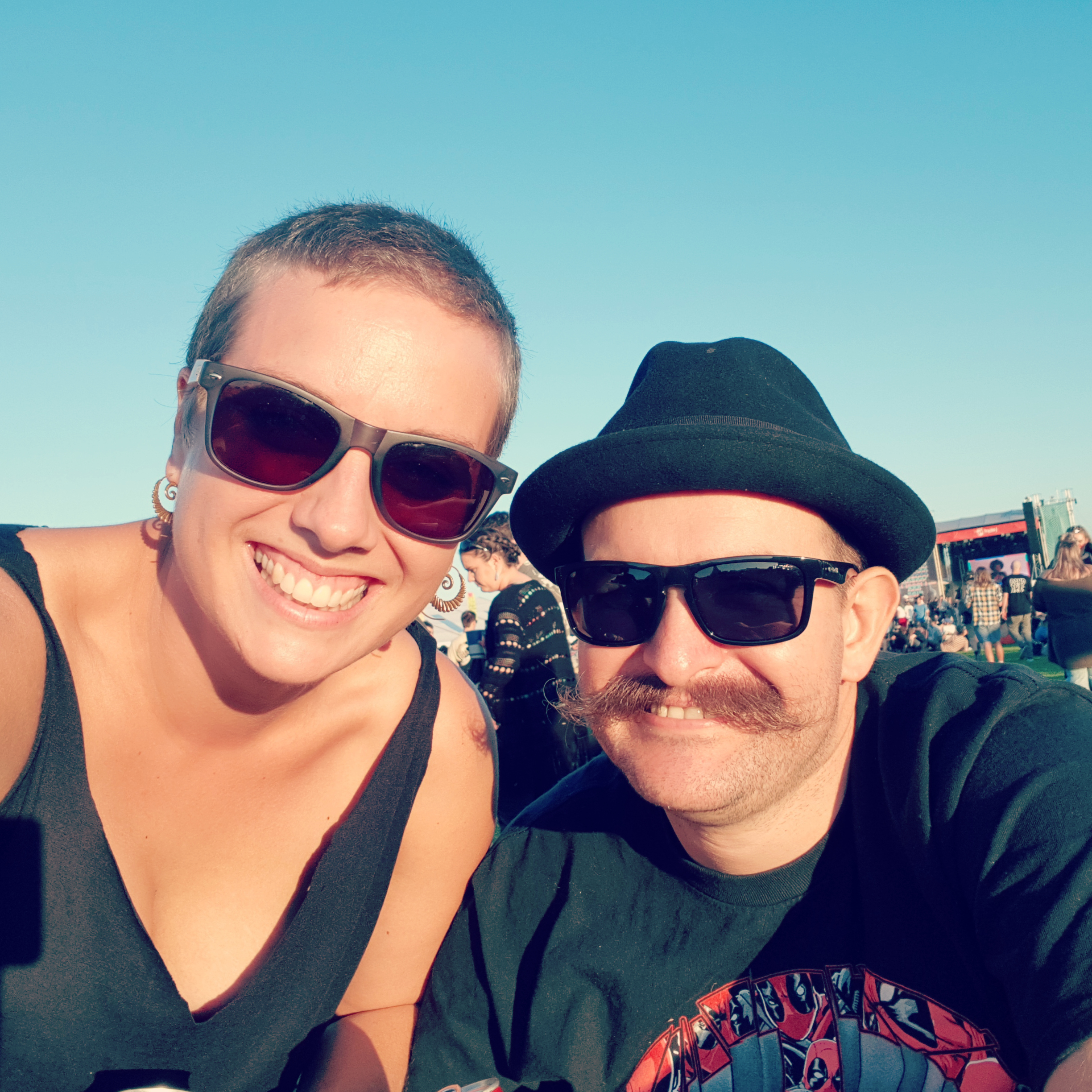Written by Ben Aldridge of 30 Foot Drop
I wasn’t always a heavy metal fan so it may be a surprise that my favourite song is Pittsburgh by Australian band, Amity Affliction. I first heard this song not long after my son was born and I was immediately grabbed by Joel Birch and Ahern Stringer’s duet.
The song is about Joel’s struggle with mental health – feeling trapped by anxiety and depression and trying to find a way out, but seemingly stuck and unable to see the way out. It really struck a chord with me.
The blend of their singing styles matched the turmoil inside me and the lyrics made me realise that I am not alone. What the song is describing reflected my own situation at the time and my struggles with Post Traumatic Stress Disorder (PTSD). I felt encourage and, not long after, I started seeing a councillor.
I love music, and particularly live music. It’s an incredible experience to be in the room with an artist or band while they’re playing songs that you can sing and dance along to. I have some amazing memories seeing some of my favourite bands and sharing good times with my friends.
Unfortunately, since becoming a quadriplegic, I haven’t had as many opportunities to experience live music.
Photo by Liam Fawell
Music is such a unique form of communication because it’s universal. A simple beat can cut-through language barriers, bringing people together from all backgrounds and cultures ... although, it doesn’t always bring together different music tastes. You’re not likely to get a classical aficionado to a death metal gig!
Regardless of their musical tastes, unfortunately a large group in our community miss out on enjoying live music experiences due to ability barriers. I can’t always guarantee if I turn up to a venue they’ll have the necessary access for me and my chair. Barriers exist beyond physical abilities too; bright lights can effect people with epilepsy, loud noises can trigger those with autism, and so forth.
It’s fair to say that access and inclusion is an after thought for most events and venues. Only until a problem is highlighted do people make changes (if they do) to correct the issue. More needs to be done to consider potential issues BEFORE the event or gig, to encourage people living with a disability they CAN enjoy the experience.
Of course, this isn’t the case for everyone. There’s some terrific examples of proactive thinking when it comes to music festivals.
Groovin’ the Moo is a national festival that travels Australia, bringing world-class music acts to regional and rural towns. Organisers, Cattleyard Promotions, was established to bring ‘fresh, fun, accessible, quality and meaningful live experiences for a diverse range of communities’. For the team, a key value is to ‘endeavour and succeed in providing live experiences to areas that traditionally ‘miss out’’. It says it right on their website.
And they’re achieving this by having conversations with those exact groups, rather than making assumptions. They want to understanding the barriers they face, what they need, and then to look at ways they can deliver solutions. I’ve personally worked with them on the Bunbury event in making it more accessible for people living with a disability, and I’m really proud of what they’ve been able to achieve so far.
Another positive example is my fellow advocate, Dylan Alcott. What he’s doing in raising awareness in the public eye about living with a disability is incredible. Obviously, he’s living proof of physical barriers and can help educate the community on a really large platform.
Dylan is a creative thinker and, like me, loves live music. That love motivated him to organise ‘Ability Fest’ – one day music festival that aims to use music as an inclusive platform to normalise disability. The event and, quite frankly, it’s website are best practice examples of inclusive behaviour.
Often when you have a disability, you want information on any potential issues before the event. I can’t tell you how many times I’ve had to go into a deep dive to try and find out if a venue has a ramp available! The Ability Fest website puts all that information is one, easy-to-find place.
Of course, the festival itself has been well thought out to provide a variety of solutions to typical barriers – ramps, raised platforms, quiet zones, companion tickets and – super important! – the bathroom situation.
It just goes to show that a little bit of consideration and discussions with the right people can go a long way to being more inclusive.
Rather than shame, I implore music venues and festival organisers to look at Cattleyard Promotions and Ability Fest as positive, best practice examples. Who knows, by making a few considered changes you could see an increase in ticket sales ... and profits!
Find out more about Ben’s journey at 30 FOOT DROP
Ben at Groovin The Moo


